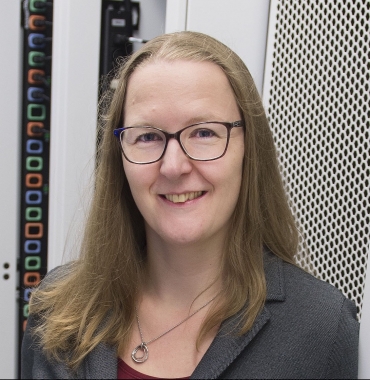
Katja Hose is a Professor of Computer Science at Aalborg University, Denmark. Prior to joining Aalborg University, she was a postdoc at the Max Planck Institute for Informatics in Saarbrücken. She received her doctoral degree in Computer Science from Ilmenau University of Technology in Germany. In this Interview Katja talks about increasing the reliability of Knowledge Graph Access as well as her expectations for SEMANTiCS 2019.
Can you tell us something about your research focus?
The most important focus of my research has been querying the Web of Data, in particular efficient query processing over distributed knowledge graphs and Linked Data. This includes indexing, source selection, and efficient query execution. Unfortunately, it happens all too often that the services needed to access remote knowledge graphs are temporarily not available, for instance because a software component crashed. Hence, we are currently developing a decentralized architecture for knowledge sharing that will make access to knowledge graphs a reliable service, which I believe is the key to a wider acceptance and usage of this technology.
How do you personally contribute to the advancement of semantic technologies?
I contribute by doing research, advancing the state of the art, and applying semantic technologies to practical use cases. The most important achievements so far have been our works on indexing and federated query processing, and we have only recently published our first work on a decentralized architecture for sharing and querying semantic data. I have also been using semantic technologies in other contexts, such as data warehousing, fact checking, sustainability assessment, and rule mining over knowledge bases.
Overall, I believe the greatest ideas and advancements come when trying to apply semantic technologies to real-world use cases and problems, and that is what I will keep on doing.
Which trends and challenges do you see for linked data and the semantic web?
The goal and the idea behind Linked Data and the Semantic Web is the second best invention after the Internet. But unlike the Internet, Linked Data and the Semantic Web are only slowly being adopted by a broader community and by industry.
I think part of the reason is that from a company’s point of view, there are not many incentives and added benefit of broadly sharing the achievements. Some companies are simply reluctant to openly share their results and experiences in the hope of retaining an advantage over their competitors. I believe that if these success stories were shared more openly, and this is the trend we are witnessing right now, more companies will see the potential for their own problems and find new exciting use cases.
Another particular challenge, which we will have to overcome, is that it is currently still far too difficult to obtain and maintain an overview of what data is available and formulate a query as a non-expert in SPARQL and the particular domain… and of course there is the challenge that accessing these datasets is not always reliable.
As artificial intelligence becomes more and more important, what is your vision of AI?
AI and machine learning are indeed becoming more and more important. I do believe that these technologies will bring us a huge step ahead.The process has already begun. But we also need to be aware that we are currently in the middle of a big hype where everybody wants to use AI and machine learning – although many people actually do not truly understand what it is and if it is actually the best solution to their problems. It reminds me a bit of the old saying “if the only tool you have is a hammer, then every problem looks like a nail”. Only time will tell us which problems truly require machine learning,and I am very curious to find out which solutions will prevail.
However, the current state of the art is still very far away from the AI systems that we all know from Science Fiction. Existing systems operate like black boxes on well-defined problems and lack true intelligence and understanding of the meaning of the data. I believe that the key to making these systems trustworthy and truly intelligent will be their ability to explain their decisions and their interpretation of the data in a transparent way.
What are your expectations about Semantics 2019 in Karlsruhe?
First and foremost, I am looking forward to meeting a broad range of people interested in semantic technologies. In particular, I would like to get in touch with industry-based research and to be exposed to a business perspective on the research we are doing.